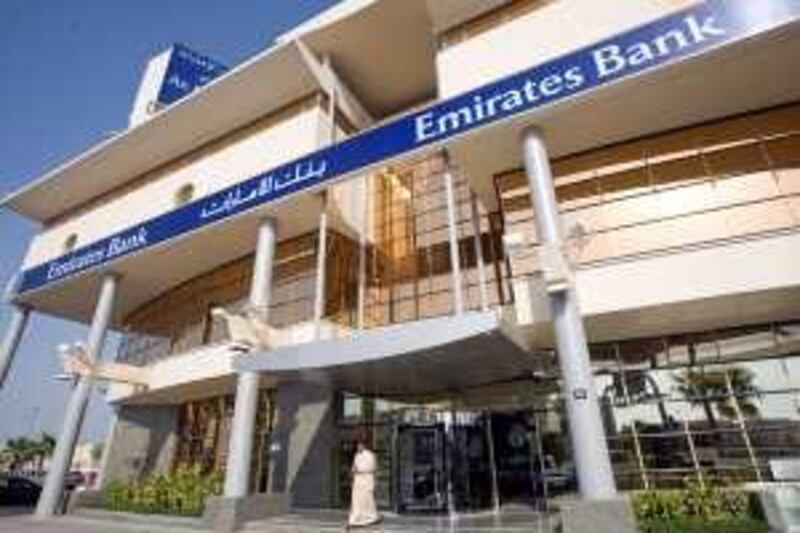The cost of insuring against the default of debt issued by Emirates Bank International and Mashreqbank rose Tuesday following a decision by Moody's Investors Service to place four Dubai-based banks on watch for a possible ratings downgrade. Credit default swaps linked to Emirates Bank and Mashreqbank climbed 32 basis points to 455 and 482.5 respectively, according to CMA DataVision. Those figures measure the price investors must pay to protect against default; an increase indicates a lower perception of credit quality.
A spate of credit rating downgrades of financial firms in the region and a perceived rise in the risk of default on their debt has stoked renewed concern over the soundness of the Gulf's financial system as governments plant the seeds of a recovery from the financial crisis. Also yesterday, Fitch Ratings downgraded Gulf Investment Corporation (GIC), a financial firm that is jointly owned by the six GCC states, saying the level of support it could expect from shareholders was waning.
The company lost US$996 million (Dh3.65 billion) last year and recently announced a further loss of $77m in the first half of this year. Standard & Poor's, another credit ratings firm, had already downgraded GIC in June, saying the firm's ability to pay its debts had "materially weakened". The Fitch downgrade cut GIC's long-term issuer default rating to "BBB" from "A", a one-notch reduction. It also cut the firm's short-term default rating to "F3" from "F1", a two-notch downgrade.
"GIC is unlikely to return to profitability in the near term, especially due to limited earnings from private-equity investments," Fitch said in a statement. "Its financial position has improved somewhat in the first half of 2009 after recording higher asset valuations, lower provisions and significantly improved capital ratios." Those credit rating actions follow a series of moves in which ratings agencies have been looking increasingly askance at the credit quality of banks and other financial firms in the Gulf.
Last month, Standard & Poor's lowered its ratings of Emirates Bank International, National Bank of Dubai and Mashreq to "A minus" from "A", and lowered Dubai Islamic Bank's long-term rating to "BBB plus" from "A minus". "The outlooks on all these ratings are negative," S&P said in a statement. The latest downgrades come as earnings at financial firms struggle to stay profitable. Banks in the UAE and across the region have reported declines in second-quarter profits as they set aside cash to deal with a sharp rise in bad loans.
Second-quarter profits at the UAE's listed banks declined by 27 per cent compared to the same quarter in the previous year. Many of the banks are also exposed to the Saad Group and Hamad Ahmad Algosaibi and Brothers, two Saudi conglomerates that are in the midst of sweeping debt restructurings. Researchers at Standard Chartered said yesterday that the deterioration of asset quality at the UAE's banks had been expected long before Moody's put the four banks on review for a downgrade.
"We have been expecting the UAE banks' asset quality to deteriorate since early this year, so Moody's action does not come as a surprise," Victor Lohle, a Standard Chartered analyst, said in a research note. "Indeed, the banks' recently released results provided a glimpse of the asset quality deterioration already under way, and we expect asset quality to continue to deteriorate for the next few quarters."
* with agencies and additional reporting by Sarmad Khan afitch@thenational.ae





